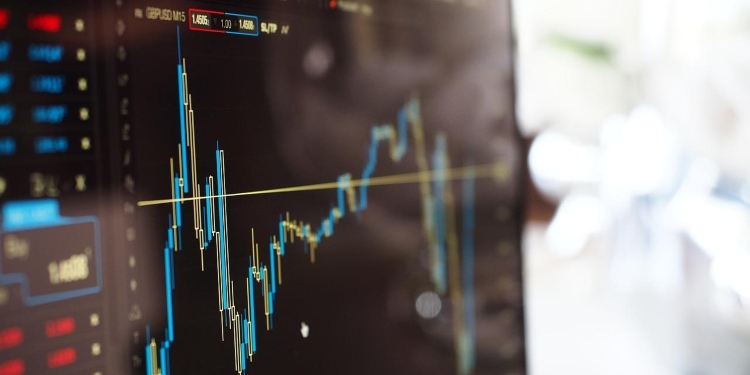EUR, USD, GBP, and JPY are among the global forex market’s most traded and used currencies. These currencies are heavily involved in world trade and drive the market in more ways than one. The GBP plays an essential role in this equation, although it’s not as critical as the USD, or features as many countries as the EUR. One critical question must be asked: “Is the GBP more volatile than the USD and EUR?”
Economic Factors Driving GBP Volatility Compared to EUR and USD
No currency can be truly immune from external forces, and the GBP is no exception. As CFD trading professionals, we’re likely familiar with internal factors influencing currency movements, but how important can these be in our new interconnected world? The following sections address a few factors worth noting.
Interest Rates
When the Bank of England announces interest rate changes, the world listens because a few basis points can mean the difference between investors doubling down on the UK economy or moving to see. We will delve deeper into monetary policies and discuss them later in this piece.
Economic Indicators
Important economic data is released frequently (monthly, quarterly, yearly). If three indicators seem negative and fail to meet investors’ and stakeholders’ expectations, it can contribute to currency volatility. Essential indicators to keep track of include employment data, inflation, and GDP growth.
Speculation
Few things are more potent than human sentiment regarding the forex market. If enough people feel the GBP will perform poorly in the next few weeks, they may instinctively make decisions like pulling out funds and liquidating positions, thereby ensuring the currency performs negatively.
Monetary Policies
Monetary Policy might seem overused if you’ve heard it enough times without proper context. A country’s monetary policy greatly influences the value and volatility of its currency. Simply put, monetary policy controls the overall supply of money in an economy, and maintaining the money supply is essential for economic growth (amongst other things).
When creating monetary policies, the Bank of England considers open market operations, the discount rate, and reserve requirements. You’ll often hear this classified as contractionary or expansionary. The GBP is a fairly stable currency and has been a marginally more reliable alternative to USD and EUR. There’s a reason why it’s always a big deal when the Chancellor of the Exchequer announces interest rate changes or reserve requirements: If handled poorly, it can affect the lives and future of people within and outside the UK.
Global Events and Their Impact on Currency Volatility
The US
There’s no disputing the United States’ influence on the global economy. The world watches intensely before major announcements from the Federal Reserve Bank. 2025 has shown how easily things can go awry when the US becomes hostile to allies.
Natural Disasters
When natural disasters occur, they can severely impact the global economy, increasing the odds of heightened volatility. The Fukushima nuclear meltdown in Japan in 2011 is an excellent example of how the entire world can be affected due to seemingly isolated natural disasters.
Wars
The last few years have shown how impactful wars can be on the global economy. An ongoing war halfway across the world can influence a currency’s volatility due to how interdependent the entire world is on each other. The early days usually have the most impact before countries can make supply chain changes.
Foreign Policy
It might be hard to imagine, but countries have “break-ups” resulting in shifting foreign policies and changes to supply chains. Due to governmental, environmental, or human rights changes, the UK might decide that a country isn’t the best choice to do business with. It happens more often than people realise.
What Increased GBP Volatility?
Most major currencies have witnessed some form of increased volatility in 2025, and it doesn’t seem like this will change anytime soon. 2024 was a significant year politically for many countries; around a quarter of the world’s population voted in general elections during the year, and 2025 is merely a manifestation of the changes people voted for (or failed to vote for).
The sterling has traditionally been the most valuable of the “big 3” currencies. It’s often 10% more valuable than EUR, while 15-20% more valuable than the USD, and this reality has been the norm for many years. The GBP has not made sudden, unexpected price movements in recent years, but many investors and stakeholders are seemingly upset at the currency’s “inaction.” The sterling has shown signs of slight volatility, but the major problem might be investors and analysts expecting too much from the currency amid increased uncertainties regarding the United States.
Time to Back GBP?
No matter what politicians are saying or doing, it’s always a great time to invest in a diverse portfolio of foreign currencies. Ensure you carry out extensive research before committing to any currencies and pairs.
David Prior
David Prior is the editor of Today News, responsible for the overall editorial strategy. He is an NCTJ-qualified journalist with over 20 years’ experience, and is also editor of the award-winning hyperlocal news title Altrincham Today. His LinkedIn profile is here.













































































